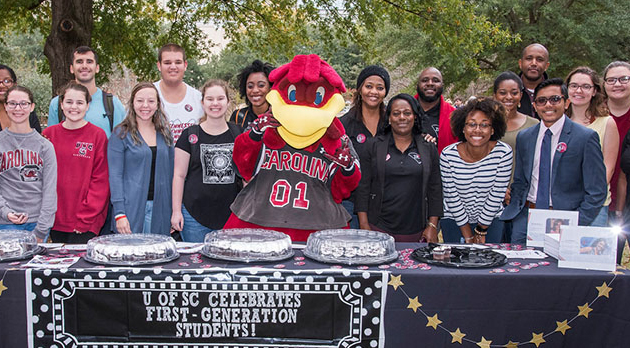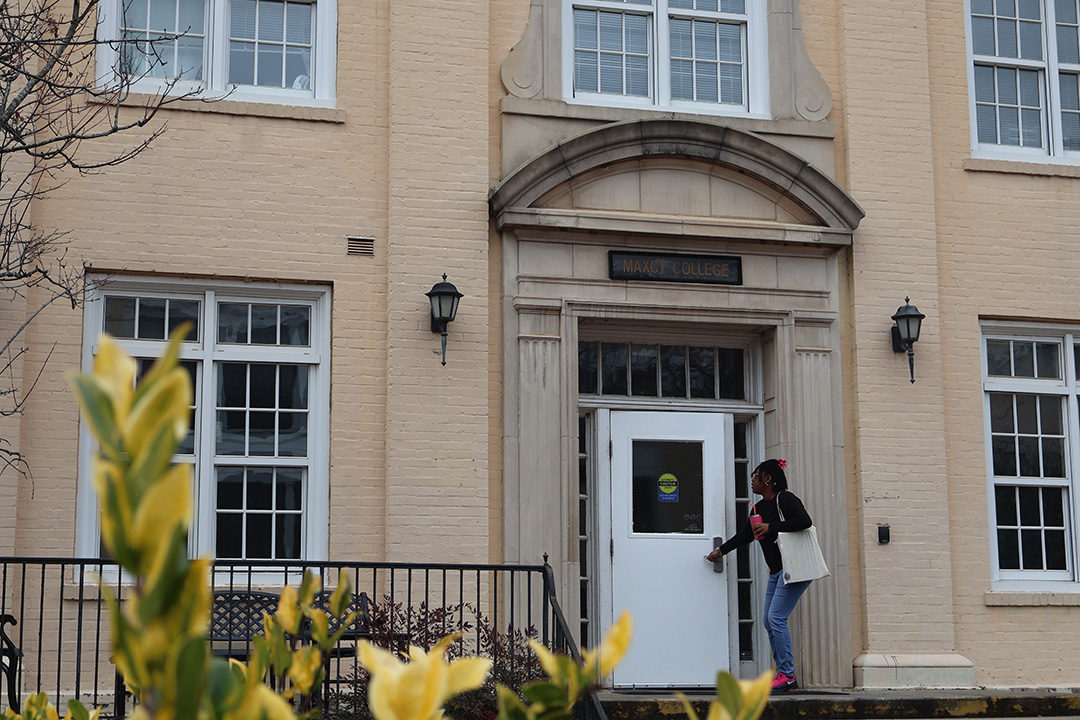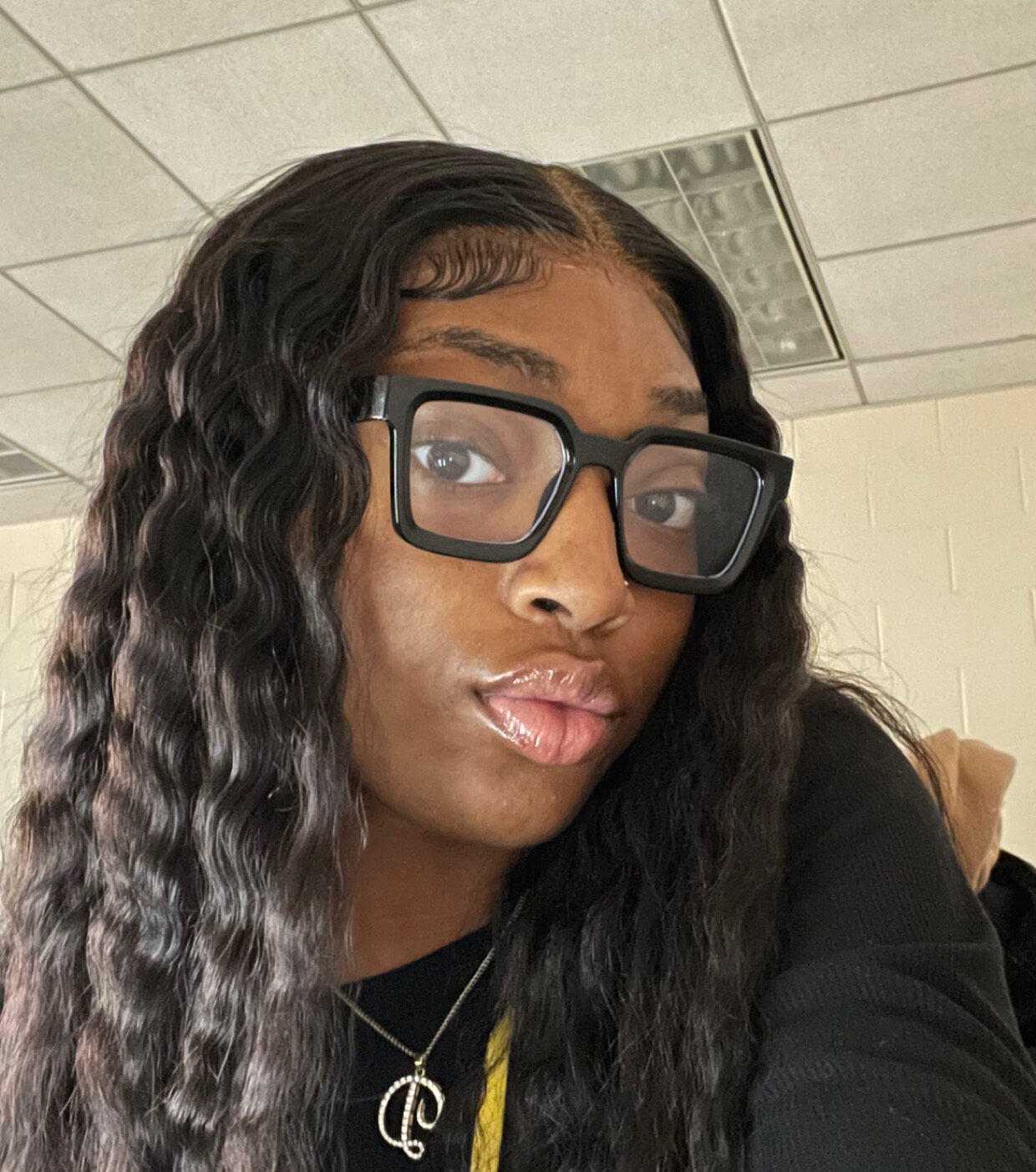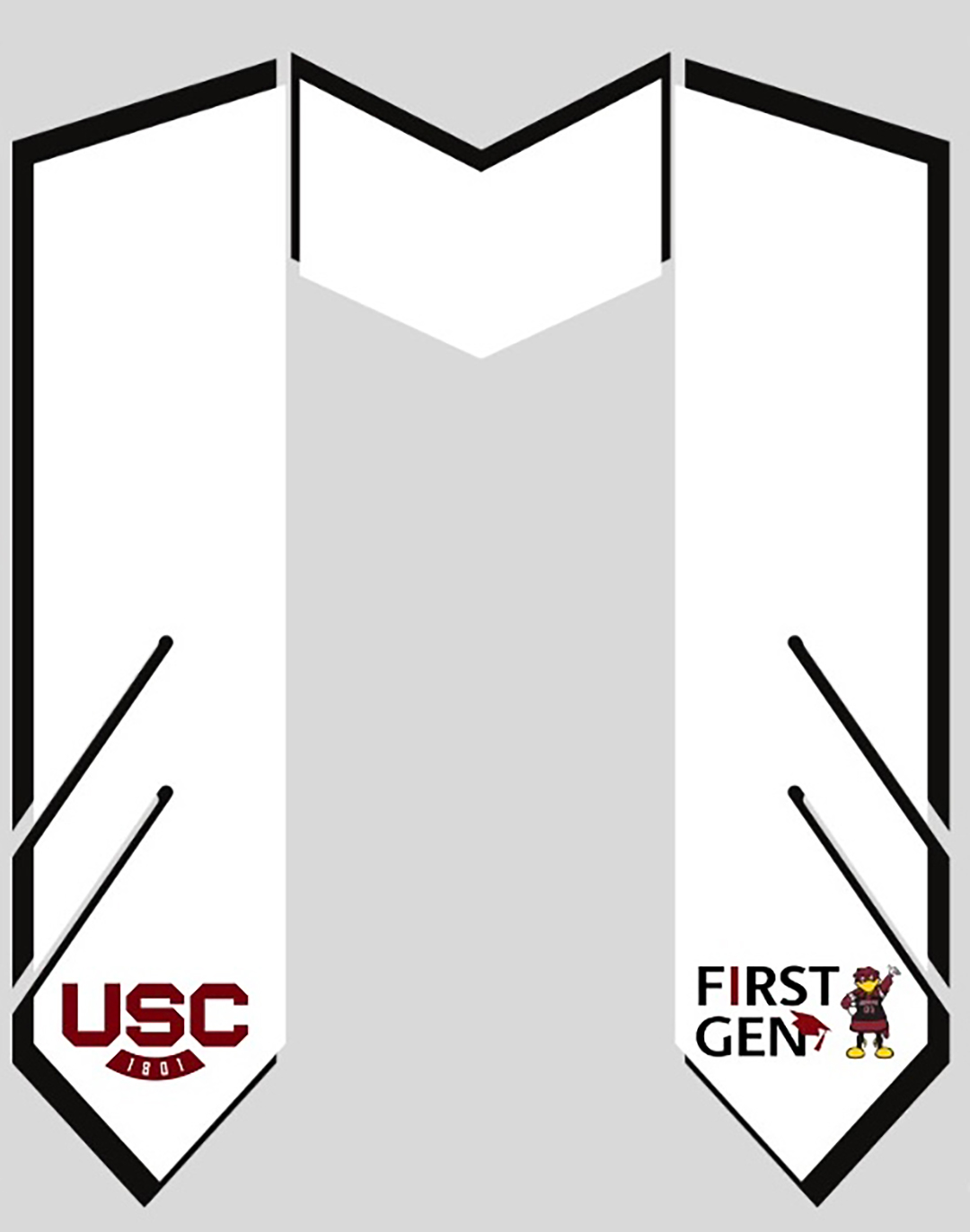As of Fall 2022, 20% of USC’s student body was first-generation. (From USC Datawarehouse/Carolina News and Reporter)
USC has committed to provide more support for its first-generation students through a strengthened relationship with the national Center for First-Generation Student Success.
“There’s a buzz around ‘first-gen,’” said Shelley Dempsey, the University of South Carolina’s assistant provost for graduation and retention. “The faculty and staff have already asked, ‘How can I do this?’, ‘What can I do?’, ‘What do you need?’ It’s been amazing.”
The center is an initiative that uses data, training programs and collaboration among members to assist first-gen students.
The university is still in the early stages of its strengthened partnership with the center, but has already begun instituting other changes to the first-gen experience.
A living and learning community will be made available for 150 first-gen students in Maxcy residence hall starting this August.
The goal of the new living space is to bridge a “knowledge gap” that USC administrators said can make the transition to college difficult for first-gen students.
“So many of our students assume that the person next to them … has parents and grandparents that have gone to college, and that they all know the terminology,” Dempsey said. “Hopefully we can create this safe space where the student knows that the other people in the room may be just as new to this as they are.”
There will be a visual change, too.
The Spring 2024 commencement will be the first to feature a commemorative stole for first-gen graduates.
The opportunity to display their first-gen status can be a point of pride for students.
“That’s going to mean a lot to me, because I’m gonna be the first person in my family,” said junior Darnaishia Gadsden-Goss. “… I’m going to be proud of myself for accomplishing it because I’m the one that actually did it. I put the work in.”
To earn the stole, seniors and juniors must complete a certain number of activity requirements, such as attending sporting events, using on-campus resources or graduating with honors.
“Things like tutoring – a lot of students are aware of tutoring, but it might be something that takes an extra push to actually engage with,” said Amanda Heinsman, a USC academic advisor and first-gen coordinator at the Honors College. “It’s also going to help them with social capital and forging connections that they may not have immediately through their parents.”
Students are asked to write about these campus experiences, reflecting on how it furthered their personal or academic goals, and how they can remain engaged on campus.
USC’s new First-Scholars designation comes with advanced statistical tools, grant assistance and collaboration with other universities on first-gen programs.
The change goes as high as the president and provost of the university, requiring full institutional support.
“This is showing a certain amount of commitment,” Heinsman said. “We’ve been working on this next level for a while, and that required getting a lot done.”
The university already has a robust network of programs for first-gen students.
Gadsden-Goss said the opportunities provided have helped with her social and academic success.
“They actually have a program here at USC that helps us through what we don’t know,” Gadsden-Goss said. “They actually take their time, (in a) step-by-step process, and help us gain all that information.”
USC has been a member university with the center before, having been a First-Generation Forward institution. The center recently offered the university First-Scholar’s status following years of continued success in supporting first-gen students.
The graduation to First-Scholars brings benefits to the university, as well as increased expectations for first-gen success.
“Over the course of the next couple of years, the University of South Carolina will officially undergo an intensive process to really think about what’s in place at South Carolina to support first-gen students,” said Kyle Nixon, the center’s network recruitment and operations director.
The center is giving USC access to its Insights Tool, a survey of university administration that will analyze existing programs for first-gen students to see what gaps may exist in support.
USC also will have access to a database from the National Student Clearinghouse. The resource will provide data on the first-gen experience nationwide.
USC’s Office of Institutional Research, Assessment and Analytics will be working with the center and university administration to review findings from this data and advise on next steps.
These ongoing developments to USC’s first-gen support programs are a “no-brainer” for the university.
“First-generation students are going to be truly the most resilient and proactive,” Dempsey said. “It’s really not what they’re lacking. It’s where we are lacking as an institution and our ability to serve them.”
Along with student housing, Maxcy dorm’s first-gen center will have temporary living space for prospective first-gen students touring the university. (Photo by Stephen Enright/Carolina News and Reporter)
Darnaishia Gadsden-Goss is a junior nursing major at the University of South Carolina. (Photo courtesy of Darnaishia Gadsden-Goss/Carolina News and Reporter)
The first-gen graduate stole, available for purchase through the university bookstore, has been made free to qualifying students. The stole program was organized by Amanda Heinsman and Paulia Williams, and is funded through the Center for Integrative and Experiential Learning at USC. (Photo courtesy of USC/Carolina News and Reporter)





